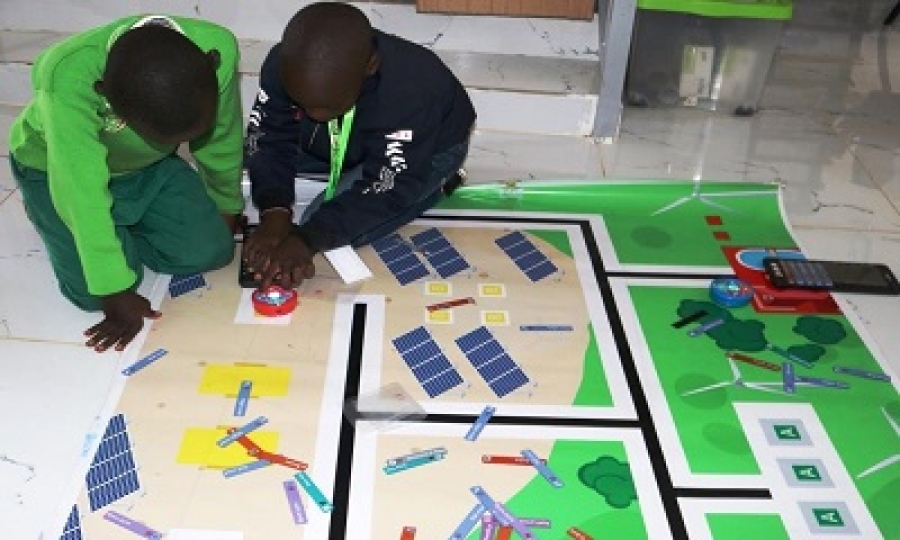THE ABC OF CODING
By MKizito and MMungai
Kenya continues to maintain its place as one of the hotbeds for digital innovation on the continent. The government of Kenya has been keen on the roll out of the implementation of the computer coding curriculum in middle school and Junior Secondary under the Digital Literacy Programme.
What is coding?
Computer coding is the use of computer programming languages to give computers and machines a set of instructions on what actions to perform. It’s how humans communicate with machines. It’s what allows us to create computer software like programmes, operating systems, and mobile applications.
This new initiative reflects an ambition to re-imagine education and a solid dedication to building the future. And as it seems both the private and public sectors are aligned with this vision. Just this year alone, Microsoft, Visa, and Google have opened their first development centers in the country’s capital.
Learning to code has vital benefits in the current age. It’s a skill that is highly valued in the workforce and jobs related to computer programming are growing exponentially. Beyond the computer, coding teaches critical thinking, problem-solving, creativity and resilience. Coding is an essential skill in the future because it is an important part of the digital transformation.
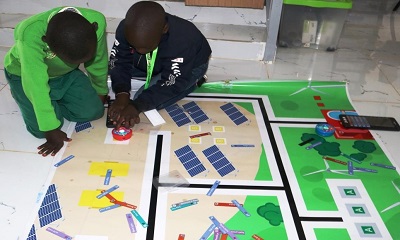
Students engaging in coding activities in the CEMASTEA Maker Space
What CEMASTEA is doing to promote and support Coding
Preparation of quality coding materials in line with the Curriculum designs that are easy to use by the learner and the teacher using ‘the from easy to complex approach’. Towards this end, CEMASTEA staff have written a coding workbook for Grade 4, 5 & 6
- Training and supporting teachers in equipping them with requisite knowledge and skills in coding in order to engage, expose and enrich the learners
- Conducting Boot Camps that are periodically placed as part of the Corporate Social Responsibility to learners from selected schools. The learners are given intense training on areas such as; Creative coding, Mobile app development, 3-D printing, Robotics, Arduino proto-typing among others during these boot camps.
- Active participation in coding events within the ECO-system, such as Rusinga school Hackerthon event
- The research and development (R &D) department has been spearheading a research on Coding uptake in Middle school and junior secondary
The number of jobs that require coding skills will grow exponentially because most services and products are being digitised. It means they will work on a virtual environment, and without coding skills, it would be hard to achieve this.
The Relevance of coding in the school curriculum is hoped to enhance students’ technological skills and put them on the scope in the ever-growing world of technology. The promotion of coding, which is a signature subject in the study of computer science and the digital world, students who learn and understand coding have an advantage of becoming full participants – rather than merely spectating – in a heavily computerised and digitised world.
The approval by the government to include coding in the Competency Based Curriculum, where Coding is a STRAND in the curriculum design gives CEMASTEA an impetus to support coding as part of STEM education through development of materials for training and supporting teachers in coding.
What is the future?
In recognition to the immense opportunities in coding, CEMASTEA has taken keen note on continued partnership with various stakeholders within the coding eco-system such as:
EduTech; Impact STEM Centre; Angaza Elimu among others.
Further, as a way of providing a platform for growth in coding, Internet of Things (IoT), Data analytics among other emerging 21st digital skill, the possibility of establishing incubation hubs where coders are given exposure, enrichment of their knowledge and skills to eventually expert - ready to work experts.
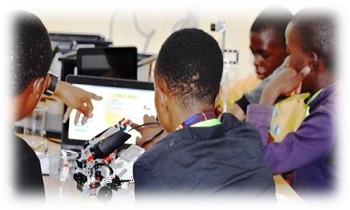
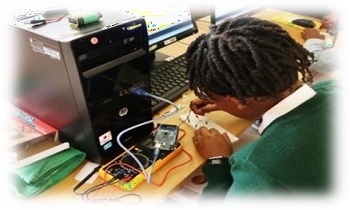
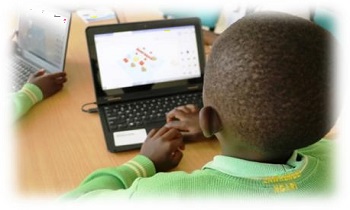
Students engaging in coding activities during the Coding Camp at the CEMASTEA
Latest from Esther Nyambura
- CEMASTEA Hosts Successful INSET Centre Principals’ Workshop
- CEMASTEA Conducts Successful Holistic Learning Training for Rwandan Teachers
- Empowering Quality Standards and Assurance Officers (QASOs) for Enhanced STEM Education
- Science and Mathematics Teachers Pilot Symposium: Innovative Classroom Practices
- CEMASTEA Strategic Plan 2023 – 2027: Key Highlights

